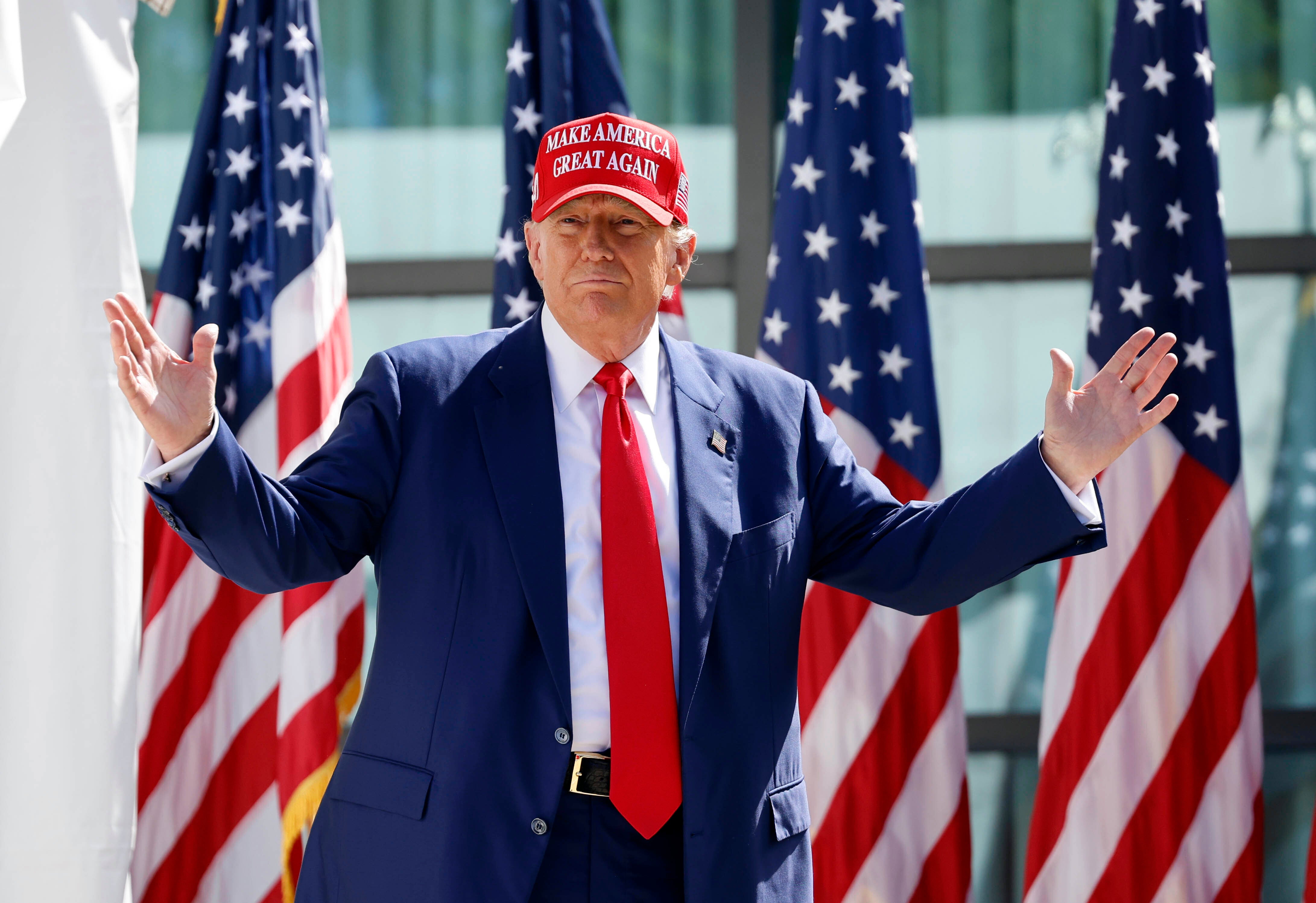Trump proposes automatic green cards for foreign nationals who graduate from US colleges
All ‘communists, radical Islamists, Hamas supporters, America haters and public charges’ would be excluded, ex-president’s campaign says
Your support helps us to tell the story
From reproductive rights to climate change to Big Tech, The Independent is on the ground when the story is developing. Whether it's investigating the financials of Elon Musk's pro-Trump PAC or producing our latest documentary, 'The A Word', which shines a light on the American women fighting for reproductive rights, we know how important it is to parse out the facts from the messaging.
At such a critical moment in US history, we need reporters on the ground. Your donation allows us to keep sending journalists to speak to both sides of the story.
The Independent is trusted by Americans across the entire political spectrum. And unlike many other quality news outlets, we choose not to lock Americans out of our reporting and analysis with paywalls. We believe quality journalism should be available to everyone, paid for by those who can afford it.
Your support makes all the difference.Former President Donald Trump has expressed interest in granting green cards to international students who graduate from US universities.
Speaking on The All-In Podcast on Thursday, Trump said: “What I want to do, and what I will do, is you graduate from a college, I think you should get automatically, as part of your diploma, a green card to be able to stay in this country.”
That move wouldn’t only apply to graduates of four-year universities either, Trump clarified.
“That includes junior colleges too. Anybody graduates from a college — you go in there for two years or four years. If you graduate, or you get a doctorate degree from a college, you should be able to stay in this country.”
The former president made the comment after one of the podcast’s hosts, investor Jason Calacanis, asked him: “Can you please promise us you will give us more ability to import the best and brightest from around the world to America?”
Trump expressed his frustration over how some US graduates leave the country and start businesses in China or India because they’re unable to obtain visas to stay.

“You need a pool of people to work for your companies and they have to be smart people… You need brilliant people and we force the brilliant people, the people that graduated from college, the people that are number one in their class from the best colleges. You have to be able to recruit these people and keep the people.”
Still, there would be conditions put in place to vet prospective graduates.
Karoline Leavitt, a spokesperson for Trump’s campaign told CNN that graduates would be screened “to exclude all communists, radical Islamists, Hamas supporters, America haters and public charges.” Public charges are people that would be largely reliant on the government for financial assistance.
She continued: “He believes, only after such vetting has taken place, we ought to keep the most skilled graduates who can make significant contributions to America. This would only apply to the most thoroughly vetted college graduates who would never undercut American wages or workers.”
The policy marks a shift in Trump’s immigration agenda, which up until this point has largely consisted of ways to deport record numbers of immigrants from the US.
During his first term, Trump targeted visa programs used by tech companies to recruit foreign workers. Instead, he instructed federal agencies to use a “Buy American, Hire American” strategy. At one point, he even banned travel from seven Muslim majority countries while in office in effort to limit refugee resettlement.
President Joe Biden has also made surprising moves in his immigration policies, including limiting asylum processing at the US border. However, this week, he made an executive action enabling certain undocumented spouses and children of US citizens to apply for lawful permanent residency without leaving the country.
The policies come as both candidates seek to win over voters ahead of the 2024 presidential election in November.

Join our commenting forum
Join thought-provoking conversations, follow other Independent readers and see their replies
Comments